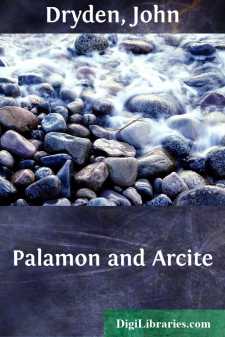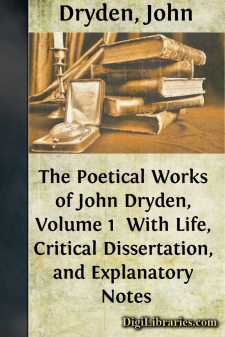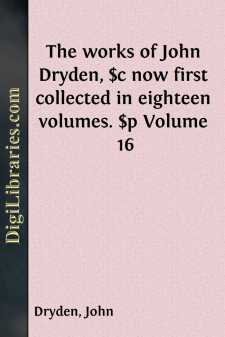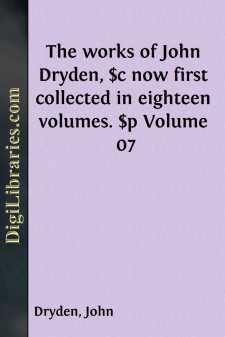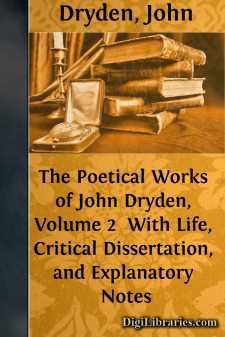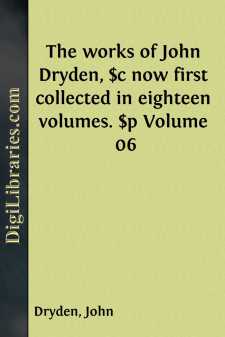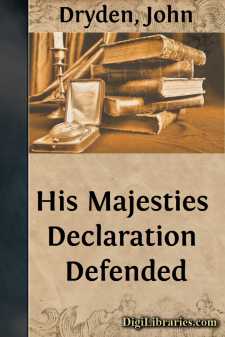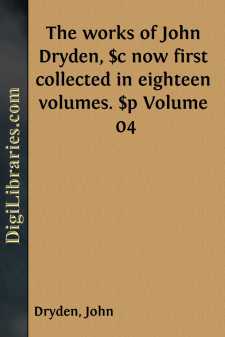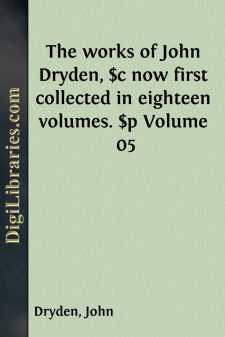Categories
- Antiques & Collectibles 13
- Architecture 36
- Art 48
- Bibles 22
- Biography & Autobiography 813
- Body, Mind & Spirit 142
- Business & Economics 28
- Children's Books 15
- Children's Fiction 12
- Computers 4
- Cooking 94
- Crafts & Hobbies 4
- Drama 346
- Education 46
- Family & Relationships 57
- Fiction 11828
- Games 19
- Gardening 17
- Health & Fitness 34
- History 1377
- House & Home 1
- Humor 147
- Juvenile Fiction 1873
- Juvenile Nonfiction 202
- Language Arts & Disciplines 88
- Law 16
- Literary Collections 686
- Literary Criticism 179
- Mathematics 13
- Medical 41
- Music 40
- Nature 179
- Non-Classifiable 1768
- Performing Arts 7
- Periodicals 1453
- Philosophy 64
- Photography 2
- Poetry 896
- Political Science 203
- Psychology 42
- Reference 154
- Religion 513
- Science 126
- Self-Help 84
- Social Science 81
- Sports & Recreation 34
- Study Aids 3
- Technology & Engineering 59
- Transportation 23
- Travel 463
- True Crime 29
Palamon and Arcite
by: John Dryden
Description:
Excerpt
THE BACKGROUND.
The fifty years of Dryden's literary production just fill the last half of the seventeenth century. It was a period bristling with violent political and religious prejudices, provocative of strife that amounted to revolution. Its social life ran the gamut from the severity of the Commonwealth Puritan to the unbridled debauchery of the Restoration Courtier. In literature it experienced a remarkable transformation in poetry, and developed modern prose, watched the production of the greatest English epics, smarted under the lash of the greatest English satires, blushed at the brilliant wit of unspeakable comedies, and applauded the beginnings of English criticism.
When the period began, England was a Commonwealth. Charles I., by obstinate insistence upon absolutism, by fickleness and faithlessness, had increased and strengthened his enemies. Parliament had seized the reins of government in 1642, had completely established its authority at Naseby in 1645, and had beheaded the king in front of his own palace in 1649. The army had accomplished these results, and the army proposed to enjoy the reward. Cromwell, the idolized commander of the Ironsides, was placed at the head of the new-formed state with the title of Lord Protector; and for five years he ruled England, as she had been ruled by no sovereign since Elizabeth. He suppressed Parliamentary dissensions and royalist uprisings, humbled the Dutch, took vengeance on the Spaniard, and made England indisputably mistress of the ocean. He was succeeded, at his death in 1658, by his son Richard; but the father's strong instinct for government had not been inherited by the son. The nation, homesick for monarchy, was tiring of dissension and bickering, and by the Restoration of 1660 the son of Charles I became Charles II of England.
Scarcely had the demonstrations of joy at the Restoration subsided when London was visited by the devouring plague of 1665. All who could fled from the stricken city where thousands died in a day. In 1666 came the great fire which swept from the Tower to the Temple; but, while it destroyed a vast deal of property, it prevented by its violent purification a recurrence of the plague, and made possible the rebuilding of the city with great sanitary and architectural improvements.
Charles possessed some of the virtues of the Stuarts and most of their faults. His arbitrary irresponsibility shook the confidence of the nation in his sincerity. Two parties, the Whigs and the Tories, came into being, and party spirit and party strife ran high. The question at issue was chiefly one of religion. The rank and file of Protestant England was determined against the revival of Romanism, which a continuation of the Stuart line seemed to threaten. Charles was a Protestant only from expediency, and on his deathbed accepted the Roman Catholic faith; his brother James, Duke of York, the heir apparent, was a professed Romanist.
Such an outlook incited the Whigs, under the leadership of Shaftesbury, to support the claims of Charles' eldest illegitimate son, the Duke of Monmouth, who, on the death of his father in 1685, landed in England; but the promised uprising was scarcely more than a rabble of peasantry, and was easily suppressed....


